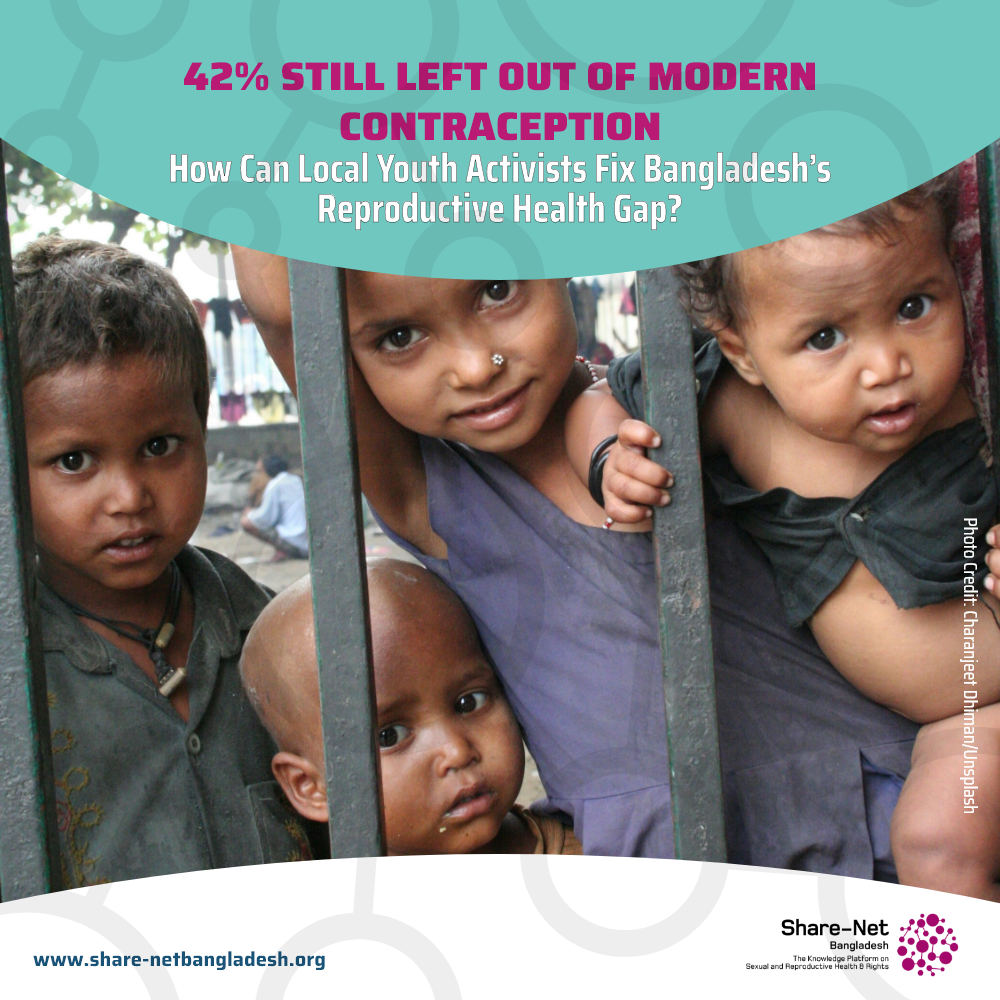42% Still Left Out of Modern Contraception: How Can Local Youth Activists Fix Bangladesh’s Reproductive Health Gap?
In a country where 71% of the population still lives in rural areas, ensuring equitable access to healthcare is more than a policy goal—it’s a lifeline. Bangladesh has pledged to achieve Universal Health Coverage (UHC) under the Sustainable Development Goals, but the journey remains fraught with systemic gaps, especially in sexual and reproductive health and rights (SRHR). A growing youth movement is now emerging as a critical force for change—demanding accountability, raising awareness, and holding healthcare providers to public standards.
Beyond the Policy Talk
UHC is often reduced to budget allocations or service availability. But as the World Health Organization (WHO) underscores, community involvement is key to meaningful health reform. And in districts like Netrokona, that involvement is increasingly being led by young people energised by recent anti-discrimination protests.
During a public forum between civil society members and the local hospital administration, several young citizens spoke out—some sharing their own encounters with service denial, corruption, and bias in care. One youth recounted being asked to pay Tk15,000 for a postmortem, a stark reminder of the informal costs people still face in emergency situations.
Their presence was not tokenistic. These youths were articulate, informed, and—most importantly—committed. One described themselves not as a “coordinator” but as a “rights vigilant student activist.” They demanded to be part of a bigger system: to help monitor service delivery, activate community clinic management committees, and work with health forums to amplify marginalised voices, especially those of women, adolescents, and rural patients.
The SRHR Connection
Access to family planning, maternal health, menstrual hygiene, and adolescent-friendly services is often the first to break down during healthcare system failures—especially in rural areas. According to the 2022 Bangladesh Demographic and Health Survey, nearly 42% of women aged 15–49 still do not use modern contraceptives, and adolescent pregnancy remains above 20% nationally. Yet young people—who are most affected—are rarely at the decision-making table.
This new wave of activism brings hope. By reclaiming space in local accountability structures, youths are reframing SRHR as a basic right, not a “women’s issue.” Their demands align with a larger global shift: moving from charity-based health interventions to rights-based, locally driven solutions.
A Local Solution to a National Problem
The movement shows that healthcare reform doesn’t always need to start in Dhaka. “While the leadership in Dhaka takes time to talk about reforms at the national level, we shouldn’t let this opportunity at the local level go to waste,” noted one civil society leader after the forum.
Indeed, youth engagement may be the missing piece in unlocking sustainable healthcare reforms, particularly for SRHR. Their energy is real. Their stakes are personal. And their willingness to work with existing structures—while pushing for better accountability—makes them ideal partners in this unfinished health revolution.
Source: TBS News

